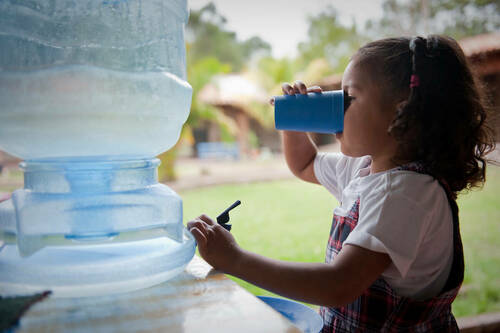
 A team of Notre Dame researchers will study private, self-supplied water systems in Kosciusko County.
A team of Notre Dame researchers will study private, self-supplied water systems in Kosciusko County.
Researchers from the University of Notre Dame have received $1.46 million from the National Science Foundation to expand a previous study of private, self-supplied water systems in Granger, Indiana, to communities in Kosciusko County. The study will focus on the identification of nitrate, a common groundwater contaminant that can cause low blood oxygen, which can lead to blue-baby syndrome and increase risk for certain cancers, birth defects and thyroid issues.
“Since private water systems, which often pull from groundwater, are not federally regulated, owners of these water systems are responsible for testing and treating their own systems,” said Dong Wang, assistant professor of computer science and engineering and principal investigator. “For the previous phase of our research, the team utilized crowdsensing — a method of data collection that relies on people to gather information and report back — to analyze the nitrate contamination within private water systems and to develop a framework for reliable and timely detection of drinking water contamination in private water systems.”
With the new funding, Wang and his team will have the capability to expand their research into new areas and analyze private well contaminants in suburban, rural, lakefront and farming communities. The researchers will use crowdsensing for obtaining credible information about water contamination in private wells via citizen science through effective outreach and implementation strategies within the designated areas.
Wang said each community’s participation is vital for the development, implementation and success of the project.
“Initially our team’s interaction with the public will be to promote awareness around the importance of drinking water monitoring of private wells as well as collecting historic data,” said Wang. “Eventually, participants will attend workshops to learn how to conduct water monitoring and interpret the data they collect. Our team plans to share the results with participants, the community and local government officials, and suggest ways to reduce risks presented by contamination.”
The study will take place over the next three years and incorporate a larger interdisciplinary team from the University of Notre Dame.
Diogo Bolster, professor of civil and environmental engineering and earth sciences (CEEES), Frank M. Freimann Collegiate Chair in Hydrology and associate director of the Notre Dame Environmental Change Initiative (ND-ECI), and Na Wei, assistant professor of CEEES, will provide technical support for groundwater modeling and contaminant monitoring and analysis. Jennifer Tank, Ludmilla F., Stephen J. and Robert T. Galla Professor of Biological Sciences and director of ND-ECI; Danielle Wood, director of community-based research and impact at the Center for Social Concerns; and Brett Peters, assistant director at the Linked Experimental Ecosystem Facility, will engage with the communities.
Additionally, Amber Mase, evaluation specialist at the University of Wisconsin-Madison, will act as an external evaluator of the study.
The Granger study was also supported by ND-ECI and the Interdisciplinary Center for Network Science and Applications.
Contact: Brandi R. Klingerman, research communications specialist, Notre Dame Research, bklinger@nd.edu, 574-631-8183; @UNDResearch
Originally published by at research.nd.edu on Jan. 29.